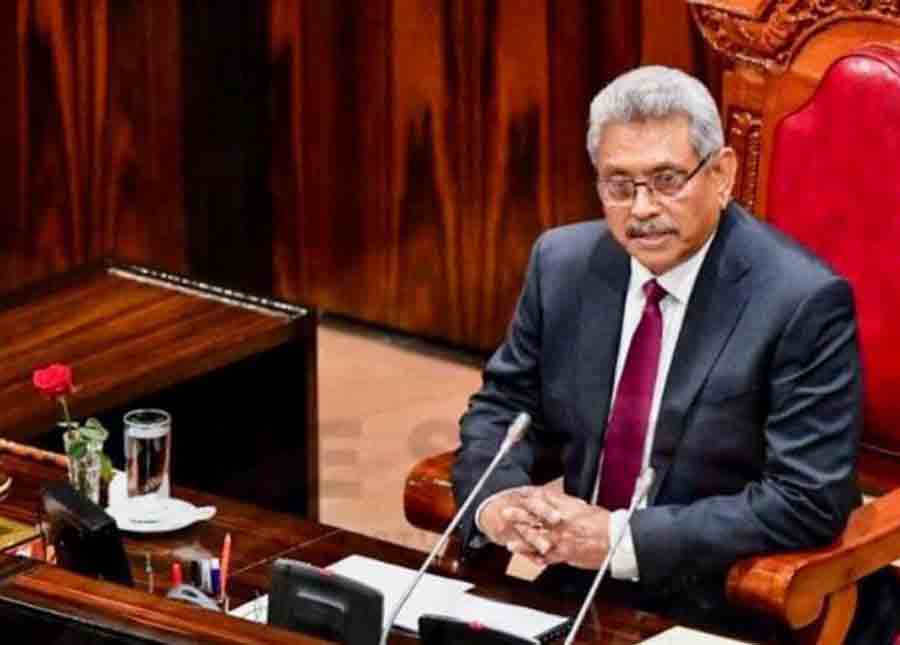Sri Lanka has temporarily shut down three foreign embassies in Norway, Iraq and Australia. Earlier in the day, President Gotabaya Rajapaksa's ruling coalition lost its majority in parliament on Tuesday after at least 41 lawmakers walked out of the alliance amid growing unrest over an economic crisis
Sri Lanka's opposition yesterday dismissed President Rajapaksa's invitation to join a unity government as "nonsensical" and instead demanded he resigns over the country's worsening shortages of food, fuel and medicines.
At least 41 Sri Lankan lawmakers walked out of the ruling coalition on Tuesday, leaving the government of President Gotabaya Rajapaksa in a minority in parliament as it struggles with the country's worst economic crisis in decades.
In another setback for the administration, Finance Minister Ali Sabry resigned a day after his appointment and ahead of crucial talks scheduled with the International Monetary Fund for a loan programme.
Rajapaksa dissolved his cabinet on Monday and sought to form a unity government as public unrest surged over the ruling family's handling of the debt-heavy economy that has led to shortages of food, fuel and medicines and prolonged power cuts.
Possible next steps could be the appointment of a new prime minister replacing the president's elder brother, Mahinda Rajapaksa, or snap parliamentary elections much ahead of a scheduled vote in 2025.
There was no immediate indication what was being planned.
Sabry said in his resignation letter he believed he had "acted in the best interests of the country".
"At this crucial juncture the country needs stability to weather the current financial crisis and difficulties," he said in the letter seen by Reuters.
Street demonstrations against the shortages, triggered by a lack of foreign exchange for imports, began last month but have intensified in recent days, leading to clashes between protesters and police in some instances.











